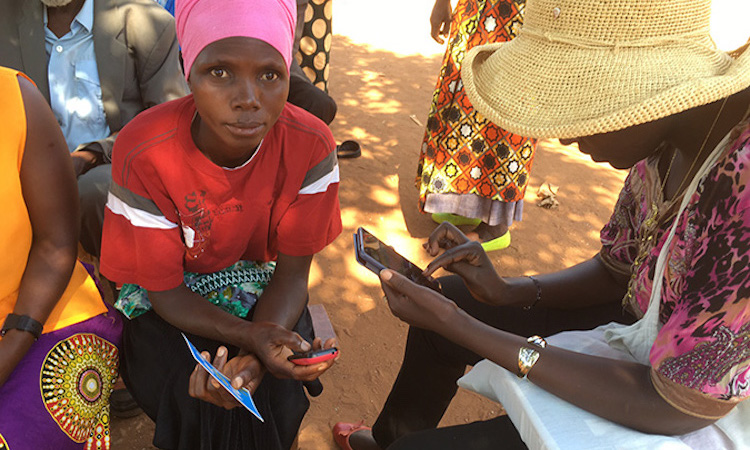
By Jaya Ramachandran
NEW YORK (IDN) – Rural women make up 25 per cent of the world’s population and in developing countries they comprise 43 per cent of the agricultural labour force that produces much of the world’s Food.

They are therefore critical to the success of almost all of the 17 Sustainable Development Goals (SDGs), as they all have gender equality and women’s empowerment at their core.
Rural women constitute the backbone of rural communities, where, “and in many households they have the key responsibility for food security, education opportunities and healthcare”, as the UN Secretary-General Ban Ki-moon has stressed.
But that backbone is under threat, as increasingly, the effects of climate change and environmental degradation are forcing rural women to migrate in search of land where they can produce food and improve their families’ lives. This leads to instability, isolation, and marginalization. Frequently, male family members leave to seek work elsewhere.
Against this backdrop, Executive Director of UN Women Phumzile Mlambo-Ngcuka said in a statement on the International Day of Rural Women that “rural women farmers can be agents of change in transforming food production and consumption so that land and resources are used efficiently and sustainably”.
“They need policies and investments that facilitate their active participation and decision-making and their access to land and climate-resilient agricultural methods,” she added.
Mlambo-Ngcuka urged countries with barriers to women’s land ownership or legislation that limits their ability to take out loans to repeal harmful laws and instead implement policies that put women in a position to scale up their production sustainably.
“Food and agricultural initiatives often disregard differences in the roles, labour burdens, assets and access to resources of rural men and women. But if women in rural areas had the same access to land, technology, financial services, education and markets as men, they could increase agricultural production and reduce the number of hungry people – and among those, the women and girls who often eat least,” she stressed.
With this in view, UN Women has joined hands with the World Food Programme (WFP) to launch a new programme in Rwanda to help women farmers forecast crop demands and create more secure and profitable supply chains through the use of digital technology.
Describing the project in Gasovu, Muhanga District, a small village in Rwanda’s Southern Province, UN Women reports, if you walk past the fields of maize mid-day, you’ll find women farmers sitting in a circle, using their smartphones as they take a break.
But they are not checking Facebook updates or Twitter streams; they are getting crucial weather and market information that will help them grow and sell their crops. And, it’s revolutionizing their farming and marketing skills.
“Before, we used to struggle to know the exact size of our land,” says Christine Mukarukundo, a maize farmer and member of the Tuzamurane Cyeza Cooperative in Muhanga district.
“As a result, farmers were unable to predict their level of production, which made negotiating with buyers and financial institutions difficult.”
Through a digital, mobile-enabled “Buy from Women” platform, farmers can know the exact size of their land and forecast the production. The platform connects small holder farmers (men and women) to the agricultural supply and value chain and provides them with critical information on weather, market prices and incoming opportunities via text messages.
UN Women, in partnership with World Food Programme’s Patient Procurement Platform (PPP), launched this innovative platform in June 2016, and it will be implemented in 10 cooperatives over the course of the next nine months.
In total, 699 women from two farming cooperatives in Gatsibo district in Eastern Province and one in Muhanga district in Southern Province have already registered. The registration process for the platform includes a mapping of farmers’ land plots, which is then used to generate a yield forecast.
The platform improves farmers’ capacity to produce marketable surplus, provides real time financial information and increases their market access, especially for women farmers, who were traditionally not involved in all parts of the value chain.
The programme enables both women and men farmers to negotiate better deals with buyers and financial institutions. In fact, some participating cooperatives have already signed advance contracts with reputed buyers, such as the Rwanda Grains and Cereals Corporation, reports UN Women.
“We used to sign contracts with buyers and not be able to meet its terms, especially related to supplies, because farmers would sell part of their produce on the side.
“Now with this system, everyone will know in advance the quantity of produce that he or she is required to bring at the Cooperative, and this will motivate everyone to meet the requirement and aim to produce surplus,” explains Beatrice Mukanoheli, another member and adviser of the Tuzamurane Cyeza Cooperative.
With real-time information that the platform provides, farmers are also able to make better decisions to adapt to climate variability by adjusting the planting time and making better use of fertilizers. [IDN-InDepthNews – 17 October 2016]
Photo: Farmers in Rwanda use the mobile platform to connect to the agricultural supply chain via text messages. Photo: UN Women
IDN is the flagship of International Press Syndicate











